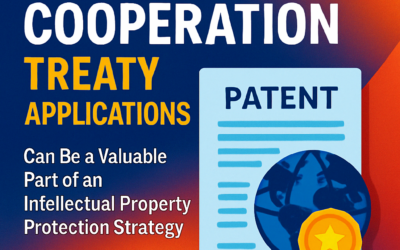Do You Need To Challenge a Patent? Everything You Need To Know About Protecting Your Patent Rights!
Whether you’re a stay-at-home sole proprietor or the owner of a burgeoning franchise, it’s important to be able to protect your IP rights. The moment you put your creations out there for the world to see, they also become vulnerable. In some cases, protecting your IP rights may include challenging a competitor’s patent. How do you know when a competitor might be infringing on your IP rights? And what can you do to challenge that? We’ll get into all of that and more in today’s blog.
Anyone can legally challenge a patent — even, in some cases, the owner of the patent! The purpose of a patent challenge is to call into question the validity of the patent, whether it is truly the inventor’s original creation and whether the owner of the patent has a valid claim to it. For instance, if you notice that your competitor has patented a unique food processing method that you created and have used for years, you certainly have the ability to challenge that.
Three Types of Patent Challenges
Patents can be challenged in one of three different ways. Each type of challenge has its own benefits and limitations. These include:
- Inter-partes review (IPR). An IPR may challenge a patent on the grounds of the novelty of the invention or the obviousness of the invention. If the invention patented is too similar to a prior work of art that had been patented, on sale, or otherwise available for public use, an IPR may challenge the novelty of the patent. If the patent is for an invention that would have been obvious to a “person having ordinary skill in the art” (PHOSITA), it is too obvious an invention to be patented. An IPR may challenge a patent for being too obvious. IPRs must be filed by a third party and at least 9 months after the patent has been granted.
- Post grant review (PGR). A PGR may be filed during the 9 month period after a patent has been granted, but it must still be filed by a third party. PGRs can challenge a patent on any grounds, not just novelty and obviousness, but also for “non-patentable subject matter.”
- Ex-partes reexamination (EPRx). This can be brought up by the owner of the patent or a third party in order to reexamine the patent. Typically, this is strictly between the patent owner and the USPTO. It challenges the patent based on prior art that may not have been considered at the time the patent was filed. An EPRx can be claimed at any point during the period of enforceability.
Pre-Issuance Submissions
What if you need to challenge a patent that has not yet been granted? The good news is there is a way to do this, through a pre-issuance submission. The patent application may be challenged by submitting prior art work as evidence that the patent would not be valid. This can be a way to stop your competitors from infringing on your IP before they start.
Protect Your IP Before You Need To Challenge a Patent
Challenging a patent can be expensive and stressful. At the end of it all, you may not have a guarantee that your claim is successful. That’s why it’s that much more important to patent your own intellectual property in order to lessen the chances of copycat patents. It’s also why it helps to have an IP lawyer at your side, ready to help you protect your rights should the need arise.
At Garcia-Zamor, we have over two decades of experience working within IP law. We have a flat fee litigation plan that allows you to pay a flat monthly fee for continuous litigation coverage when the need arises, meaning you’ll pass the risk of high legal fees to our firm. Contact us today for more information.







